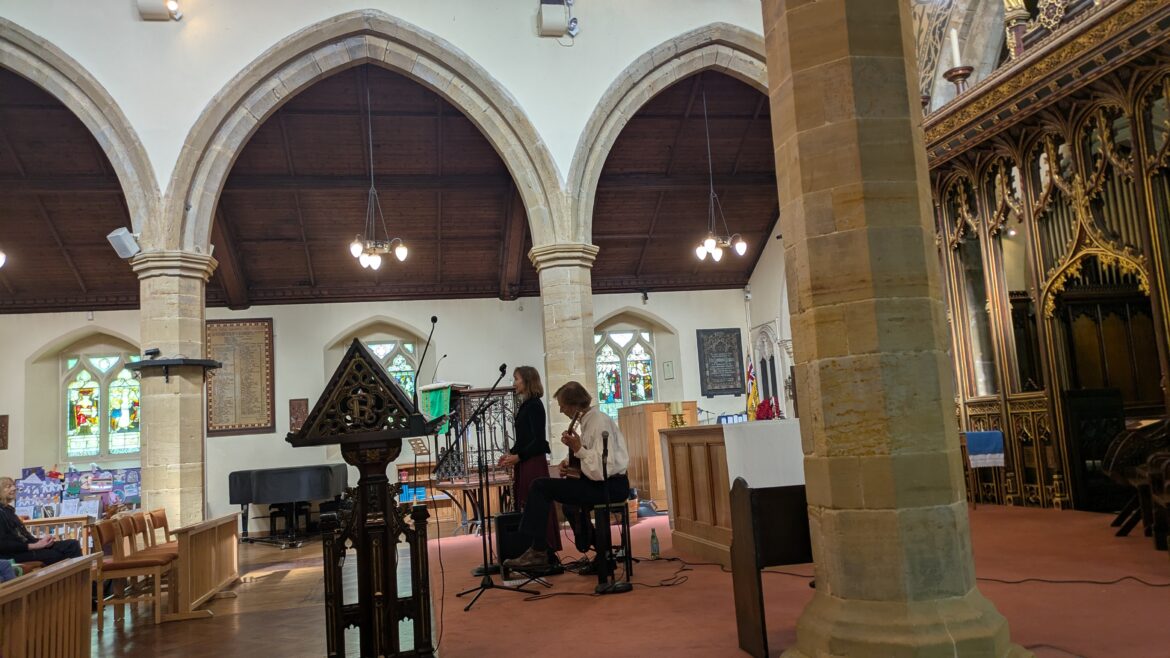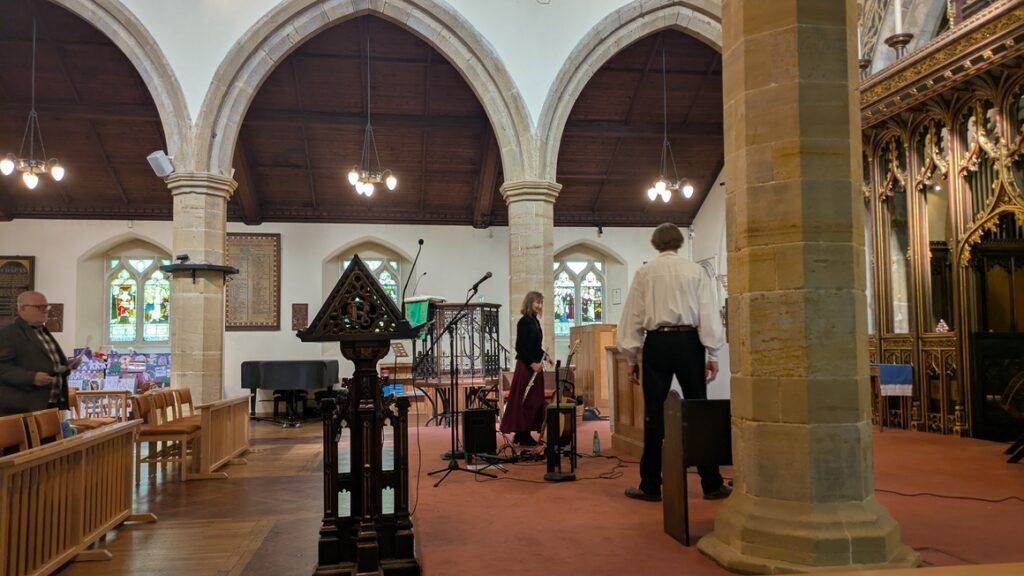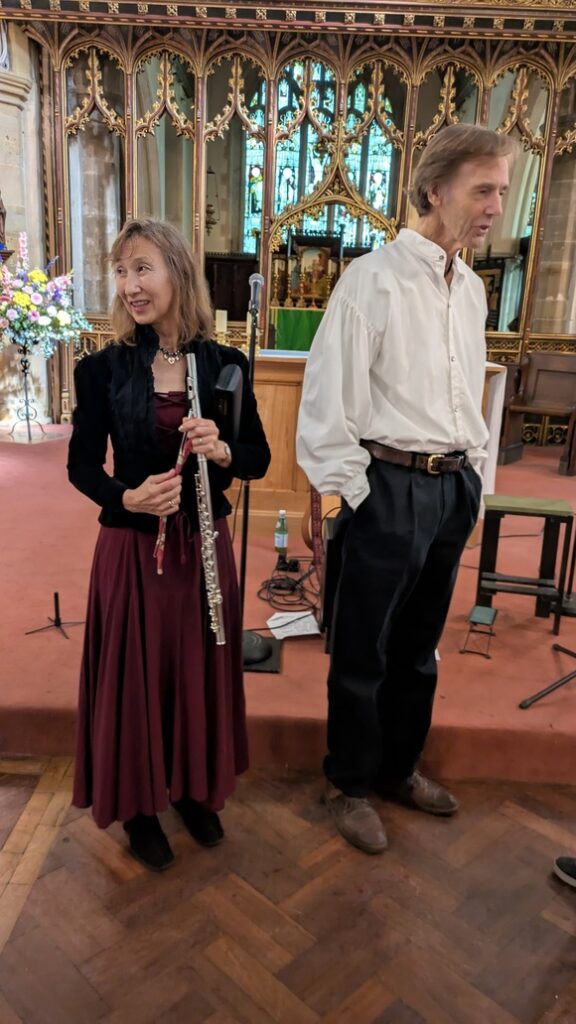Review by Simon Jenner, September 3 2025
★★★★
Sylvia Akagi and Peter Golden are beginning to carve out a reputation on the south east coat and make a welcome return to St Nicholas. Again their rich combination scores: voices solo and duetting; flute (Akagi) and guitar (Golden) in all permutations
We started with vocal duets. The traditional ‘All My Trials’ is beautifully harmonised, haunting and true. Next a flute and guitar arrangement of ‘Dark Eyes’ shimmers with a wholly different timbre but still in the quiet sonance of the singers’ ambit.
The arrangement of Irish 19th century poet Samuel Ferguson ‘Lark in the clear air’ is ‘traditional’ though setting a known poet. It’s realised here with a bardic simplicity and a melodic soaring if grater sophistication.
Schubert’s ‘Ave Maria’ comes from settings seven of Walter escorts songs from his novel ‘The Lady of the Lake’. Here the piano part is divided between flute and guitar. Finally the two instruments make a fine ritornello of the material.
Golden is also a composer. Struck by an image of a furious young Afghan girl of about 17 with green eyes staring defiance. Golden writing ‘The reflected light of freedom’ setting his own words, asking how this image summarises recent and current oppressions. ” We don’t think about freedom. Perhaps that’s what freedom is.” Akagi sings to Goldens guitar. It’s affecting and memorable in its knowing fragility.
‘Peggy Gordon’ is a solo voice traditional setting delivered by Golden without accompaniment. An Irish piece and inflected with harmonic overtones it’s winningly pared down.
Stanley Myers’ 1970 ‘Cavatina,’ made famous from its use in the 1978 film The Deer Hunter, with words by the late Cleo Laine, is sung by Akagi with an elegiac regret; with Golden on guitar. Akagi joins Golden with her flute for an elegant instrumental postlude before resuming her vocal fermata.
Hungarian film composer Jozsef Kosma’s 1945 ‘Autumn Leaves’ is a song wrought from his own ballet; which in turn echoes Massenet’s Poeme d’Octobre No. 4 and Tchaikovsky’s late (1888) Fantasy Overture Hamlet Op 67. In 1950 Johnny Mercer produced a shorter English version from Jacques Prévert’s original; and Akagi sings this again accompanied by Goldens guitar. This has tonal and thematic resonances with the last song. Its refrain is irresistible.
Boccherini’s Minuet from one of his many string quintets (he invented the genre, though added a, second cello, not viola). He also wrote guitar quintets (that is a guitar a string quartet). Already famous it reached everyone through the 1955 so Ealing comedy The Ladykillers. This attractive arrangement lays some of the harmonies bare and shows how exquisitely wrought it is.
‘Berlin’ describes the dead land in ‘Potsdamer Platz’ where even now the dead trying to cross into Western Germany. Golden noticed a father trying I explain this to his young son. Though Golden holds the tenor and magically Akagi joins him in several passages, rather more than refrains. Akagi alternates solos: there’s much more variety in this song than anything previously; and there wasn’t slack before.
The Fomin/Raskin ‘Those were the days’ shot to fame in 1968 sing by Mary Hopkins and can still raise an ache and lump. It was in fact a Russian folk song
Now, some of us, look back to those days we even keener regret. Because the song with Hopkins’ stratospheric soprano wasn’t describing a past, it was elegising the present without knowing it.
Akagi is magical here, inhabiting those high almost girlish soprano lines and Collins way if evoking a breathy fragility without being either. She brought it to the couple’s last recital, again at the end. And it still aches. A soft September spell.




